Introverted Reserved Animals and their myers briggs personality types
- Aria Fox
- Infj , Myers briggs type indicator , Wildlife , Wild dogs , Pets , Animal welfare
- September 3, 2023
The Introverted Myers Briggs Personality : Shy And Quiet Type
Exploring Animal Examples and Identifying Traits
The Myers Briggs Personality Type Indicator (MBTI) is a popular tool used to categorize individuals based on their psychological preferences. The MBTI is based on the work of psychiatrist Carl Jung and was developed by Katharine Briggs and Isabel Briggs Myers. It categorizes individuals into 16 different personality types, each with their own unique characteristics. One of these personality types is the Introverted type, which is characterized by a focus on internal thoughts and feelings. In this article, we will explore the Introverted Myers Briggs Personality Type, some of the animals that have this type, and how you can notice it.
What is the Introverted Myers Briggs Personality Type?
The Introverted Myers Briggs Personality Type is one of the four main categories in the MBTI, along with Extraverted, Intuitive, and Judging.
Individuals with an Introverted personality type tend to be introspective, thoughtful, and reserved.
They often prefer to spend time alone or in small groups, and they may find it difficult to open up to others. Introverts are often misunderstood as being shy or antisocial, but this is not necessarily the case. They simply derive their energy from within, rather than from external sources like social interactions.
Some animals that have the Introverted Myers Briggs Personality Type
Animals, like humans, can also exhibit Introverted personality traits. Here are a few examples of animals that have been observed to display introverted behavior:
Now lets have a look, what animals are shy and quiet :- Animals are more complicated than most of us realize. We can appreciate the many sides of dogs and cats that live with us, but wild creatures are a different story. Because they live in their own worlds and we aren’t close to them, we underestimate their intelligence, intuition, and altruism. We think they’re simple beings. They’re not. They’re as varied as we are.
This is an introduction to the introverted (I) members of the animal kingdom: the owl, sloth, deer, octopus, wolf, beaver, meerkat, and house cat. Unlike extraverted (E) animals, the introverts are generally quiet and often shy.
INTP: Owl Introverted, Intuitive, Thinking and Perceiving
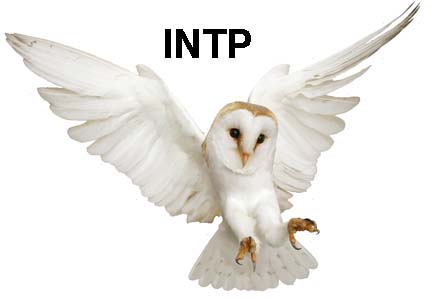
Like most INTPs, owls have logical minds. They’re mindful and quiet. They’re solo operators and don’t socialize with other owls unless they’re mating. They don’t have patience with rules, even those laid down by other owls. While they’re not very friendly, they’re perceptive and wise.
As pets, owls never lose their wild behavior unless hand-raised from birth. People who use owls for falconry can tame baby owls, but only if they bond with them from the time the owlets open their eyes. Taming these birds is a challenge. An owl is an independent creature and never becomes affectionate unless it’s hungry. Owners who allow them the freedom of their houses are likely to find plants knocked over and glassware broken on the floor. They also have to deal with owl droppings on their curtains and upholstery.
ISFP: Sloth
Introverted, Sensitive, Feeling and Perceiving
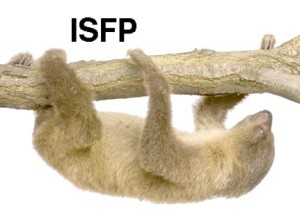 Like human ISFPs, sloths are easygoing peace-makers. They take things as they come and live in the moment. In the company of other sloths, they are caring, mellow and considerate. While they have principles, they don’t make an issue of them. They avoid confrontations or standing up for their rights. While people think of them as lazy, what’s closer to the truth is that they’re just more laid back than humans.
Like human ISFPs, sloths are easygoing peace-makers. They take things as they come and live in the moment. In the company of other sloths, they are caring, mellow and considerate. While they have principles, they don’t make an issue of them. They avoid confrontations or standing up for their rights. While people think of them as lazy, what’s closer to the truth is that they’re just more laid back than humans.
Some people keep sloths as pets. The can become quite dependent on their owners, and they’re gentle with kids. Since they move slowly, they’re no trouble to keep up with. However, they do need large living spaces and plenty of tall climbing equipment. They must be kept in a consistently warm environment to maintain their body temperature. They need special diets with just the right amount of trace ingredients, and their veterinary care is costly. Finally, owners should be prepared for the long haul, as sloths can live to be thirty.
ISFJ: Deer Introverted, Sensing, Feeling and Judging
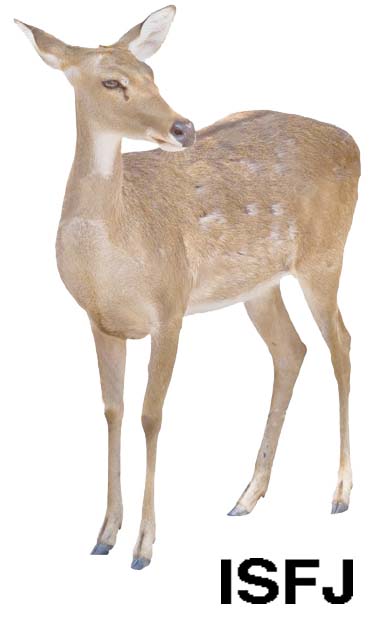 As ISFJs, deer are serene creatures, but they’re alert to everything in their environment. Their acute powers of observation help them avoid danger. They make themselves scarce during hunting season, avoid predators, and are even careful to avoid cars on busy roads. With their own species, they value harmony and show respect. The few people who live with them describe them as sensitive and trustworthy.
As ISFJs, deer are serene creatures, but they’re alert to everything in their environment. Their acute powers of observation help them avoid danger. They make themselves scarce during hunting season, avoid predators, and are even careful to avoid cars on busy roads. With their own species, they value harmony and show respect. The few people who live with them describe them as sensitive and trustworthy.
Not many people have been able to keep deer as pets. If not reared from their early days of life, they remain wild. Occasionally, humans have rescued fawns and raised them by hand. When this happens, deer often become loyal pets, even making friends with other animals in the house. They can be house-trained if they’re given access to the outdoors. However, an indoor life is unnatural for deer. They need plenty of space to wander in and opportunities to run with other deer.
INTJ: Octopus
Introverted, Intuitive, Thinking and Judging
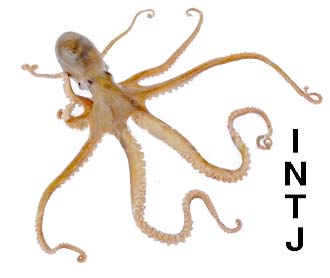
Does the octopus have enough personality to deserve a Myers-Briggs type? Like all INTJs, these sea creatures are independent, intelligent and creative. Octopuses are quite aware of their own sharp minds, solving difficult problems. And they’re smart enough to know when a challenge is too much for them. Unless they’re looking for a meal, they ignore other ocean life. They work alone.
Marine biologists say that the octopus may be among the smartest ocean dwellers. Some move their arms in ways that copy the shape and movements of other sea animals. In captivity, they’ve been seen at play, much like children in a swimming pool. They grab toys in the water, then let them go in a circular current so they can catch them again. They escape from aquariums in search of food. They’ve even climbed into fishing boats and opened boxes to eat crabs. It’s unrealistic to try making a pet of an octopus.
INFJ: Wolf Introverted, Intuitive, Feeling and Judging
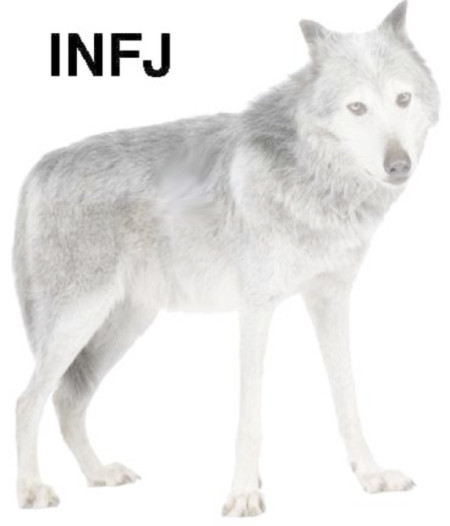 INFJ wolves, like their human counterparts, have morals and values. Often creative and inspired, they re skilled at sensing emotions in others, but they’re not likely to reveal much of themselves until complete trust has been established. Still, they are intensely concerned with the well being of their friends and families. They tend to remain mysterious and complex even when others know them well. Pack members see alpha wolves as protectors and natural leaders.
INFJ wolves, like their human counterparts, have morals and values. Often creative and inspired, they re skilled at sensing emotions in others, but they’re not likely to reveal much of themselves until complete trust has been established. Still, they are intensely concerned with the well being of their friends and families. They tend to remain mysterious and complex even when others know them well. Pack members see alpha wolves as protectors and natural leaders.
Few people keep wolves as pets because socialization isn’t possible unless a wolf pup has been adopted within the first 2 weeks of life. For the first 4 months, the puppy needs to be kept away from other dogs in order to bond with owners. Pet wolves can become unpredictable and dangerous when they reach adulthood. These intelligent and dominant animals aren’t meant to live with humans. All wolves need 10 to 15 square miles of free space for exercise. They are running, hunting animals, always on the move.
ISTJ: Beaver Introvert, Sensing, Thinking and Judging
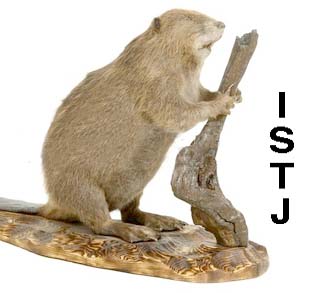
Like all ISTJs, beavers are logical, hard-working types. They’re organized and live by team rules. They have a reputation for taking a practical approach to everything. When busy building and maintaining their dams, they’re dedicated workers who will do whatever is needed to get the job done. Like their human counterparts, they aren’t always easy to get along with. Both males and females get into fights on occasion, and many have scars on their rumps from being bitten by other beavers.
Beavers don’t make good pets. They need rivers to live in. Can they be kept in a pool? Only if the owner is willing to clean out the feces (poop), because beavers defecate in water. Any furniture in the house will be reduced to wood chips. And beavers will use their skills as busy workers to rearrange pillows and other household items. Then there’s the matter of size. Many grow to be more than four feet long and weigh over 50 pounds. Even zoos find beavers hard to keep.
INFP: Meerkat Introverted, Intuitive, Feeling and Perceiving
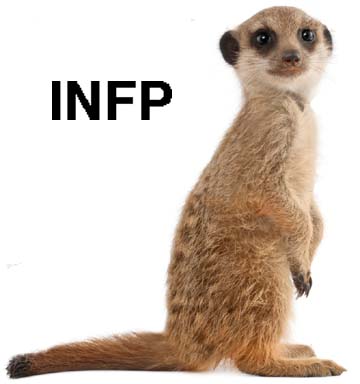
INFP meerkats are loyal to their families and friends. They stick together and live according to their values. Their behavior reflects an innate idealism and desire to coexist peacefully. They are curious about everything that goes on around them and are open to new experiences. However, when any of their family is threatened, they rise to the cause and get aggressive.
Like most INFPs, meerkats are easygoing and friendly, but they have alert minds. In the wild, they guard against danger by giving one family member the job of sentry while the others search for food. Some people, drawn by media images of these furry creatures, adopt them as pets. Usually, the work and risks are more than they bargained for. While meerkats can be cuddly, they also tend to destroy household belongings and sometimes hurt children. Their special diets and veterinary care are expensive, too.
ISTP: House Cat Introverted, Sensing, Thinking and Perceiving
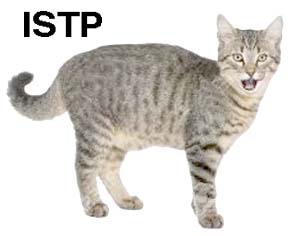
As a typical ISTP Myers-Briggs type, the house cat is a study in contrasts. Cats are quiet and analytical, always trying to figure out how things work. But they’re easily bored. They’re keen to move on to the next adventure. As ISTPs, they’re often daredevils racing around or jumping off high places. If they were human, they’d be bungee jumpers. They’re live-and-let-live types, not particularly concerned with rules, regulations, or the good opinion of others.
As pets, house cats have many of the same qualities as their wild cousins, including bobcats, tigers, and leopards. The pet cat is just a lot smaller and therefore less dangerous. However, pity the mice that think it’s safe to be around one. Pet cats have the same basic instincts as jungle cats. They stalk prey, sharpen their claws, climb trees, and leap from one surface to another with grace and beauty. ISTP cats are sometimes sociable, but often they’re aloof, enjoying their private space.
How to notice the Introverted Myers Briggs Personality Type in animals
Identifying the Introverted Myers Briggs Personality Type in animals can be challenging, as they cannot communicate their thoughts and feelings verbally. However, there are certain behaviors and characteristics that may indicate an introverted personality in animals. Here are a few signs to look for:
- Solitary behavior: Animals that prefer to spend time alone or in small groups may be exhibiting introverted behavior.
- Independent nature: Animals that are self-sufficient and do not rely on others for support may be displaying introverted traits.
- Thoughtfulness: Animals that take time to think before acting or making decisions may be exhibiting introverted behavior.
- Reservedness: Animals that are quiet and do not engage in excessive social interactions may be displaying introverted traits.
- Sensitivity: Animals that are sensitive to their environment and the emotions of others may be exhibiting introverted behavior.
The Introverted Myers Briggs Personality Type is a unique and often misunderstood personality trait. Both humans and animals can exhibit introverted behavior, and by understanding these traits, we can gain a deeper appreciation for the diversity of personalities in the world around us.
Individuals with an Introverted personality type tend to be introspective, thoughtful, and reserved.
Remember, introversion is not a weakness, but rather a different way of experiencing and interacting with the world.
